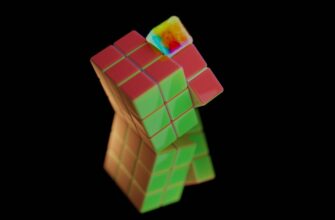- Introduction to Swing Trading BNB on Bybit
- Why the 15-Minute Timeframe is Ideal for Beginners
- Setting Up Your Bybit Account for BNB Trading
- Essential Indicators for 15-Minute BNB Swing Trading
- A Simple 15-Minute Swing Trading Strategy for BNB
- Risk Management Tips for New Swing Traders
- Common Beginner Mistakes to Avoid
- FAQ: Swing Trading BNB on Bybit (15-Minute Timeframe)
- Conclusion: Your Path to BNB Swing Trading Success
Introduction to Swing Trading BNB on Bybit
Swing trading BNB (Binance Coin) on Bybit using a 15-minute timeframe offers beginners an ideal balance between rapid opportunities and manageable analysis. This strategy focuses on capturing short-to-medium price swings in BNB’s volatile market—typically holding positions for hours to days—while leveraging Bybit’s user-friendly platform and low fees. The 15-minute chart reduces market noise compared to shorter timeframes, making it perfect for newcomers to crypto trading. In this guide, you’ll learn a step-by-step approach to start swing trading BNB profitably.
Why the 15-Minute Timeframe is Ideal for Beginners
The 15-minute chart strikes a sweet spot for new swing traders:
- Reduced Noise: Filters out minor price fluctuations that dominate 1-minute or 5-minute charts.
- Faster Signals: Provides quicker trade setups than hourly/daily charts, fitting busy schedules.
- Manageable Analysis: Allows 2-4 hours of daily monitoring without overwhelming beginners.
- Clear Trends: Easier to identify support/resistance levels and momentum shifts.
Setting Up Your Bybit Account for BNB Trading
Follow these steps to prepare for BNB swing trading:
- Sign up for a Bybit account and complete KYC verification.
- Deposit USDT (Tether) via crypto transfer or fiat on-ramp.
- Navigate to Derivatives > USDT Perpetual and select BNBUSDT.
- Adjust your chart to the 15-minute timeframe (click “M15” in the chart toolbar).
- Enable basic indicators like EMA and RSI (more on this next).
Essential Indicators for 15-Minute BNB Swing Trading
Use these beginner-friendly tools to spot opportunities:
- EMA (Exponential Moving Average): Apply 9-period and 21-period EMAs. Look for crossovers—e.g., 9 EMA crossing above 21 EMA signals bullish momentum.
- RSI (Relative Strength Index): Set to 14 periods. Readings below 30 suggest oversold (buy) opportunities; above 70 indicate overbought (sell) conditions.
- Support/Resistance Levels: Identify price zones where BNB repeatedly bounces or stalls. Draw horizontal lines on your chart.
A Simple 15-Minute Swing Trading Strategy for BNB
Execute trades using this beginner-friendly approach:
- Entry Signal: Buy when 9 EMA crosses above 21 EMA + RSI rises from below 50. For shorts, reverse the conditions.
- Stop-Loss Placement: Set 1-2% below recent swing low (long) or above swing high (short).
- Take-Profit Target: Aim for 2:1 risk-reward ratio. Exit at next major resistance (long) or support (short).
- Position Size: Risk no more than 1% of your capital per trade.
Example: If BNB bounces off $300 support with bullish EMA crossover, enter long. Set stop-loss at $297 (-1%) and take-profit at $306 (+3%).
Risk Management Tips for New Swing Traders
- Always use stop-loss orders—never trade without one.
- Start with low leverage (5x-10x max) to avoid liquidation.
- Trade only 1-2 setups daily to prevent overtrading.
- Keep a trading journal to review wins/losses weekly.
Common Beginner Mistakes to Avoid
- Ignoring broader market trends (check Bitcoin’s 1-hour chart for context).
- Chasing pumps without confirmation from indicators.
- Letting emotions override stop-loss rules.
- Neglecting Bybit’s trading fees (0.01% for makers, 0.06% for takers).
FAQ: Swing Trading BNB on Bybit (15-Minute Timeframe)
Q1: Is 15-minute swing trading profitable for beginners?
A: Yes, with discipline. Focus on high-probability setups and strict risk management. Expect 3-5 quality signals daily.
Q2: How much capital do I need to start?
A: Begin with at least $200-$500. This allows meaningful position sizing while limiting risk (e.g., $2-$5 per trade at 1% risk).
Q3: Can I automate this strategy on Bybit?
A: Partially. Bybit supports stop-loss/take-profit orders but not full automation. Use TradingView alerts for EMA/RSI crossovers.
Q4: What time is best for 15-minute BNB trading?
A: Overlap periods (e.g., 8-11 AM UTC) when Asian, European, and US markets are active maximize volatility.
Conclusion: Your Path to BNB Swing Trading Success
Swing trading BNB on Bybit’s 15-minute chart empowers beginners to capitalize on crypto volatility without constant screen time. Master the EMA/RSI strategy, enforce strict risk rules, and gradually scale your trades. Remember: Consistency beats home runs. Start with a demo account, then transition to small live trades. BNB’s liquidity and Bybit’s robust tools create an ideal environment—now it’s your turn to execute.








